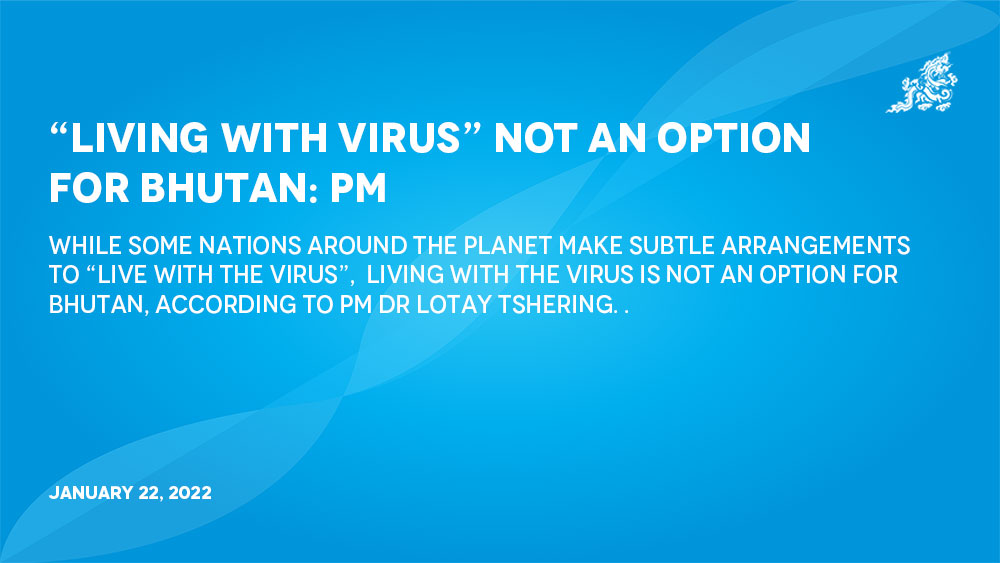Phub Dem
While some nations around the planet make subtle arrangements to “live with the virus”, living with the virus is not an option for Bhutan, according to PM Dr Lotay Tshering. .
The country is locking down dzongkhags, clinging to ‘zero-Covid-19 cases’ from the community, he said at a press conference yesterday.
Lyonchhen said the focus of the government, for now, is saving lives by enforcing lockdown whenever there is a community case. “Lockdown is to eliminate the virus from society.”
He said that the government’s focus is not to have local infections and eliminate them when cases come. “The choice is to save lives as opposed to livelihood.”
Lyonchhen added that announcing complete lockdown indicates a “not living with the virus” strategy, adding that such an approach will be of grave risk to the elderly and those living with comorbid conditions.
The health ministry developed the Omicron strategy, emphasising on elimination and saving lives over economy or livelihood issues.
Although the Omicron variant is highly transmissible, it requires minimum hospitalisation compared to the Delta variant, said the chairperson of the technical advisory group (TAG), Dr Sithar Dorjee.
He said that the health team isolated and protected the elderly groups and those with comorbid conditions while screening the contacts. “The team monitors them and prioritises them even during the vaccination programmes.”
The strategy also includes protecting the health workers. Dr Sithar Dorjee said it was essential to protect health workers as Bhutan has limited health specialists to provide services continuously.
He said that living with the virus was the ultimate end, and the strategy could be quickly adopted.
He said that even if the country considers living with the virus if the elimination strategy fails, the country has to undergo intermittent lockdown depending on how hospitals are occupied and overwhelmed. “If hospital beds are occupied when living with the virus, the country has to undergo lockdown.”
Some people, exhausted with the hardships and disruptions of the pandemic entering its second year in Bhutan, welcome the new stance—‘live with the virus’. But other people are against the strategy, saying that it was risky to underestimate the dangers posed by the Omicron.
Some took to social media that such an elimination strategy was expensive on lower-income groups significantly whose livelihood was disrupted by the pandemic. Others shared that such an strategy was essential to protect the unvaccinated children and vulnerable groups.


